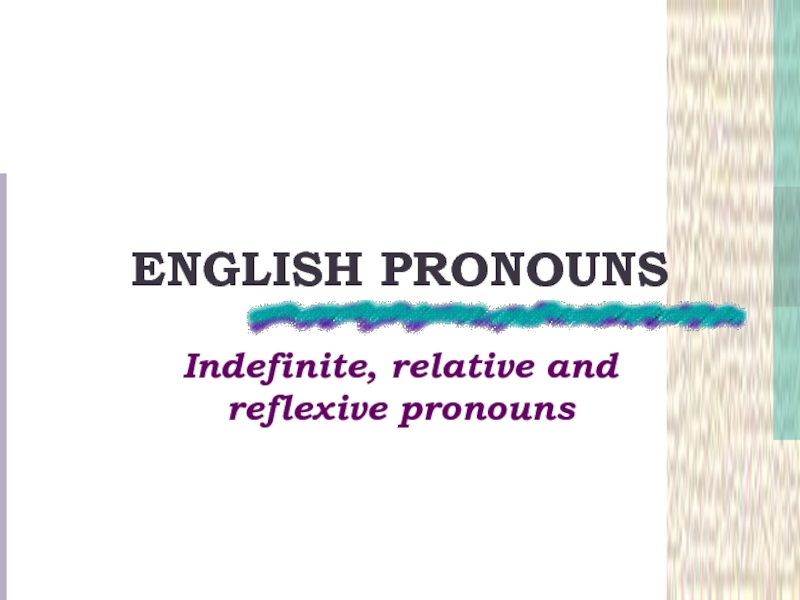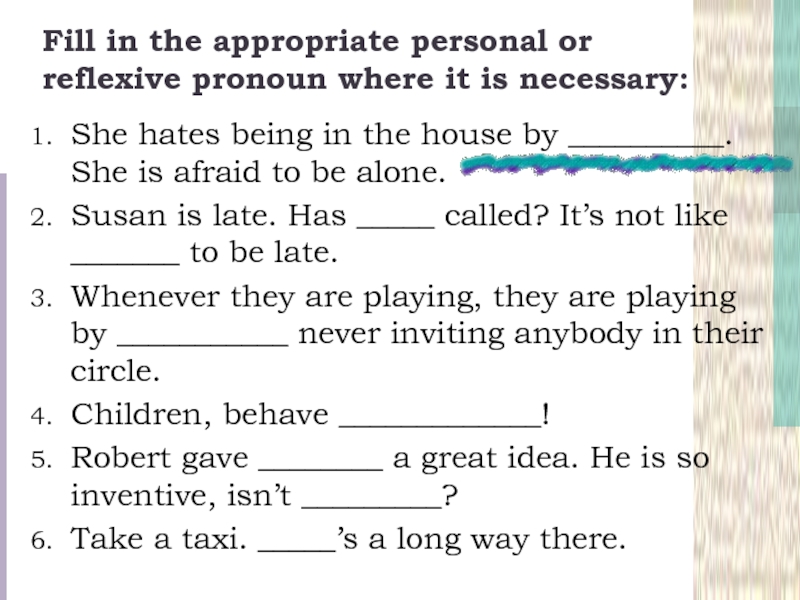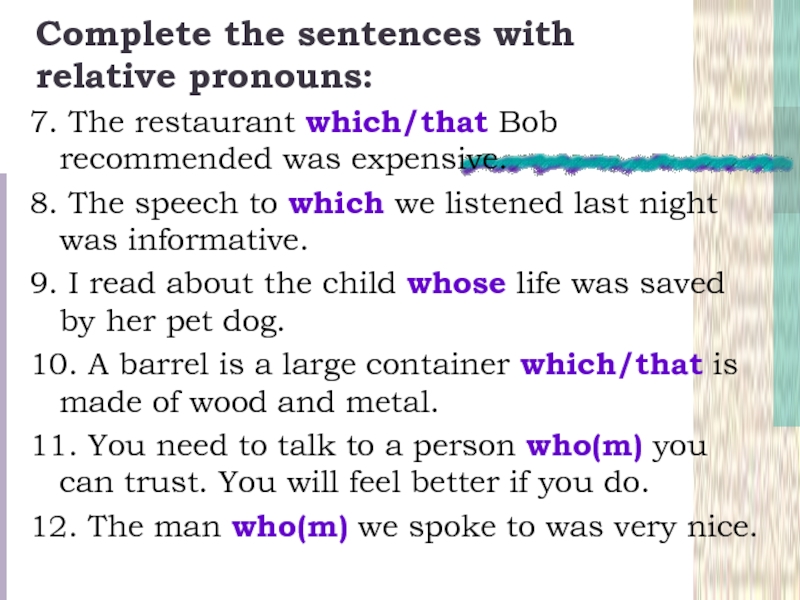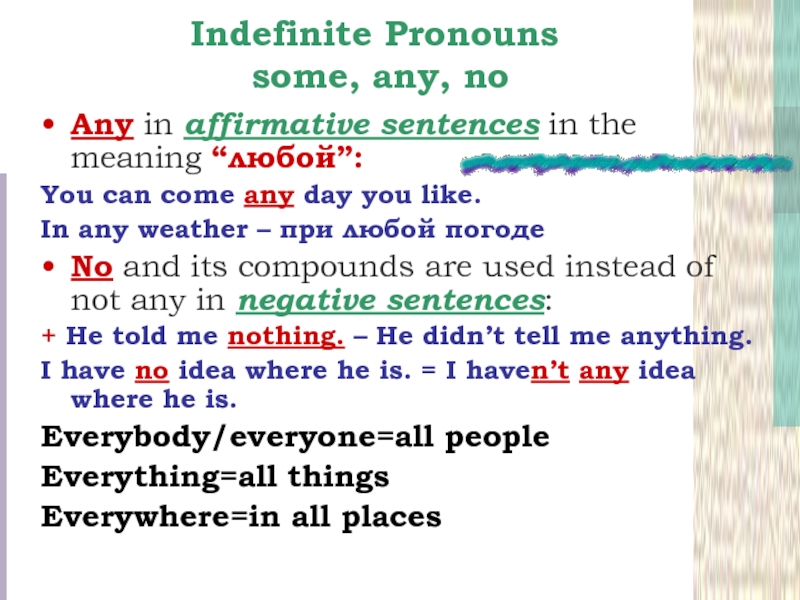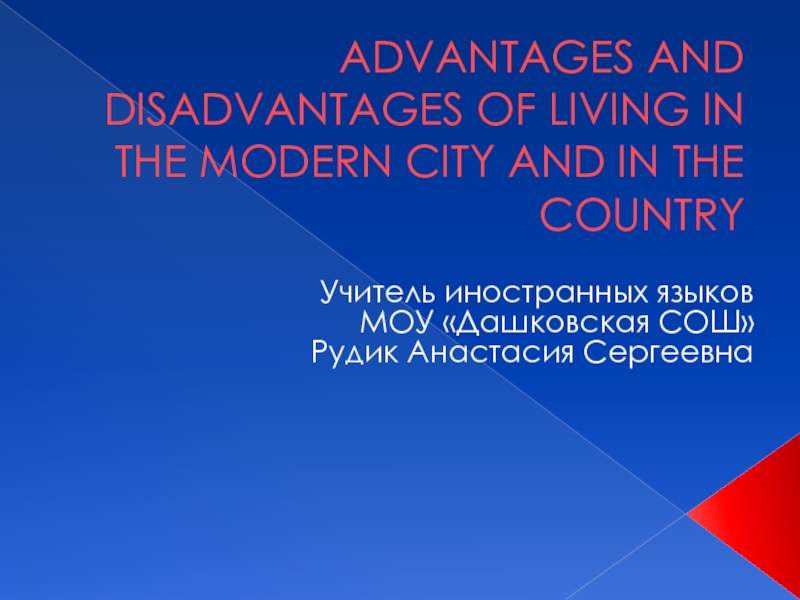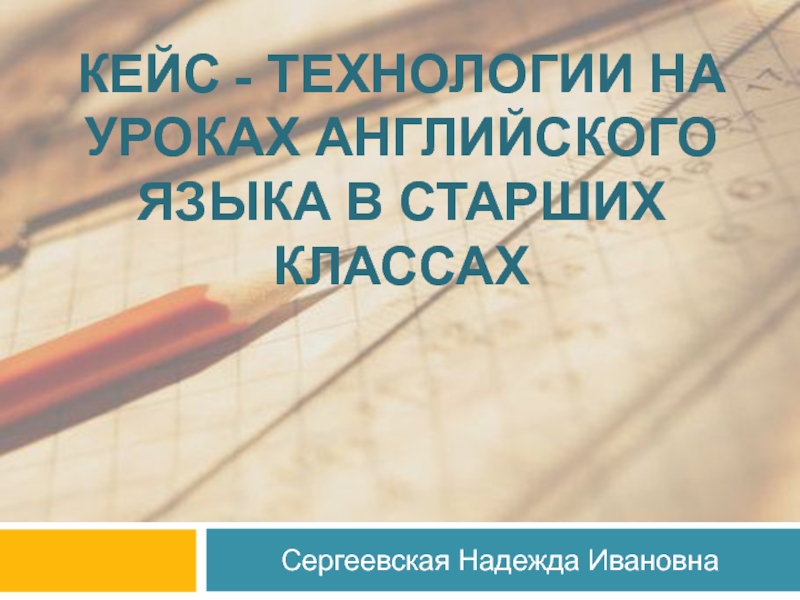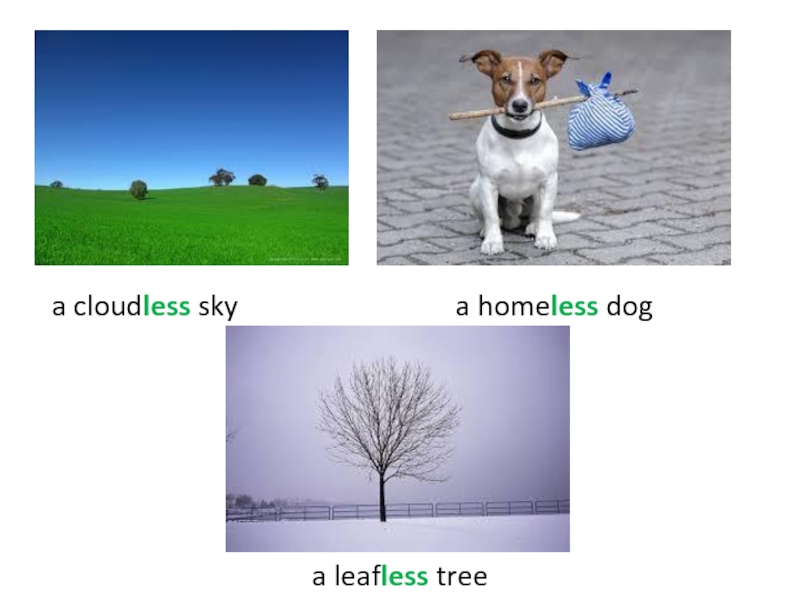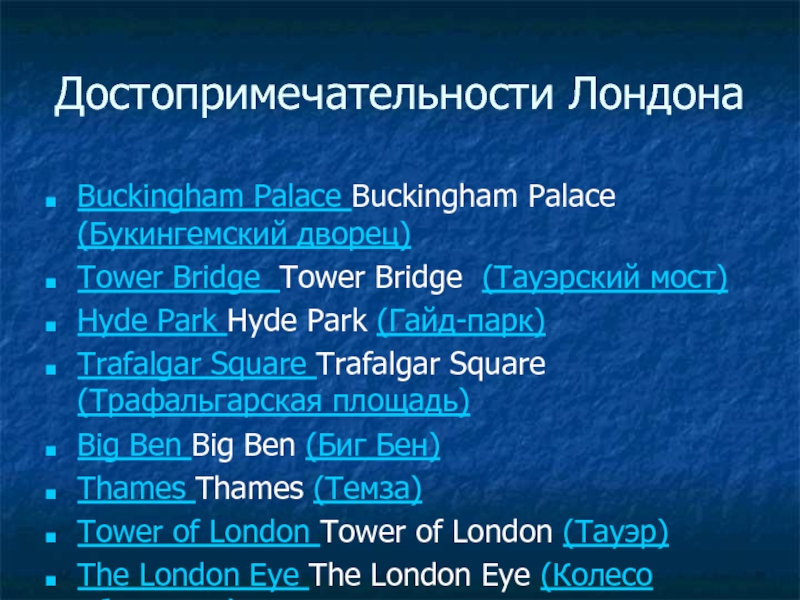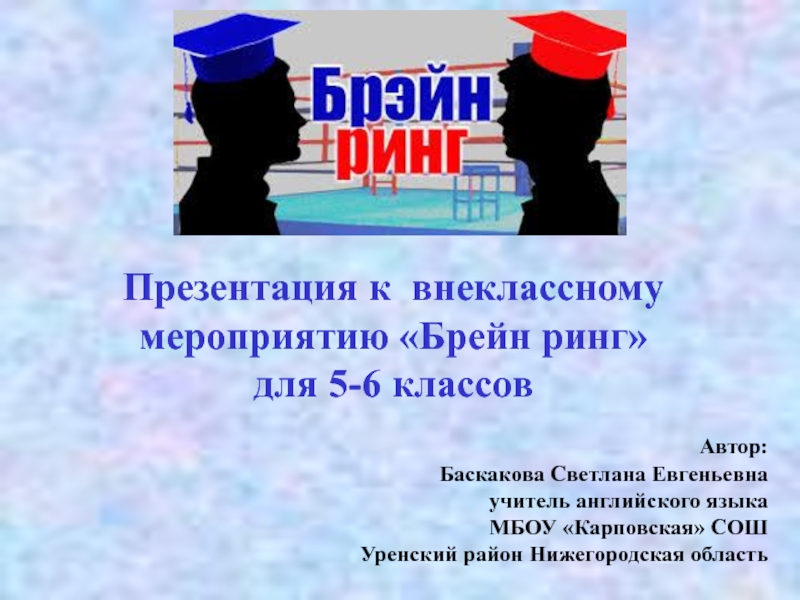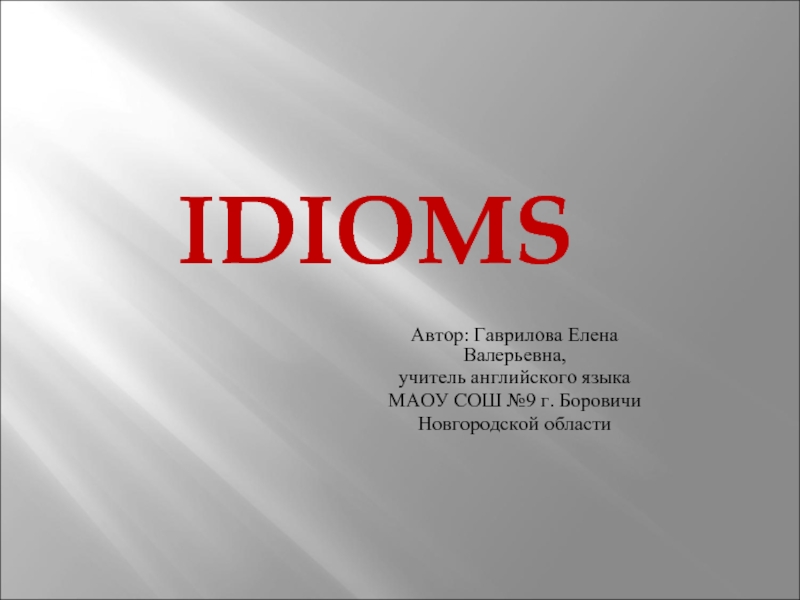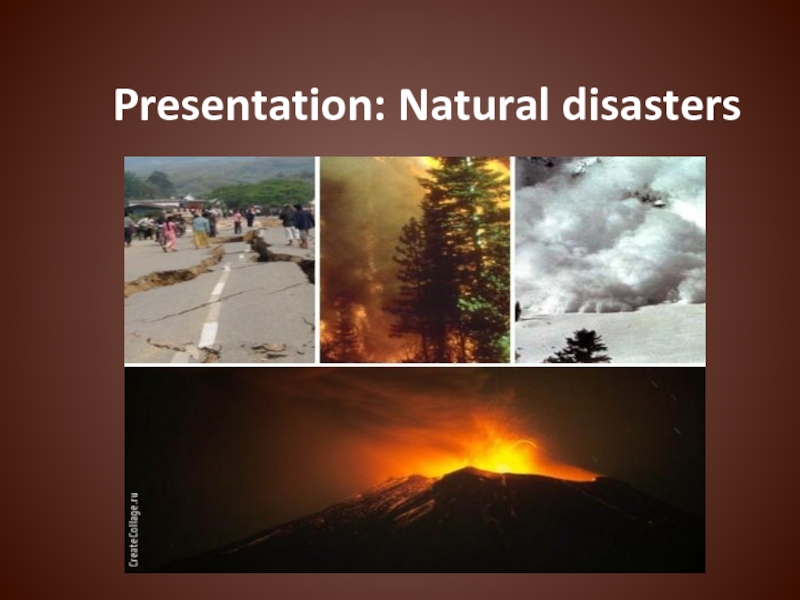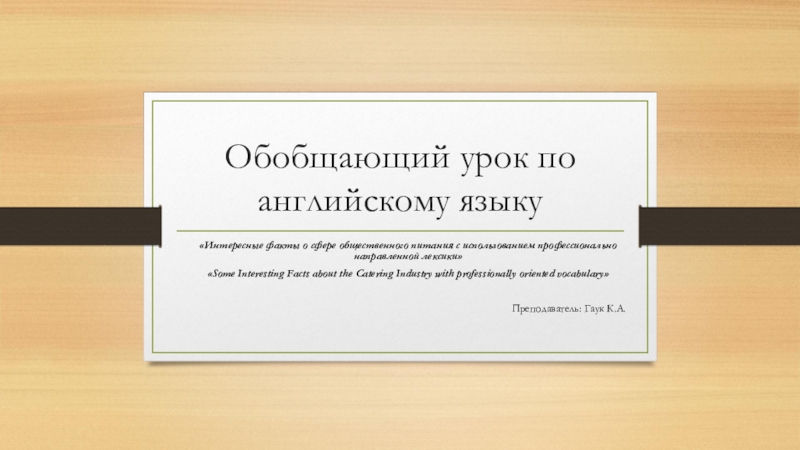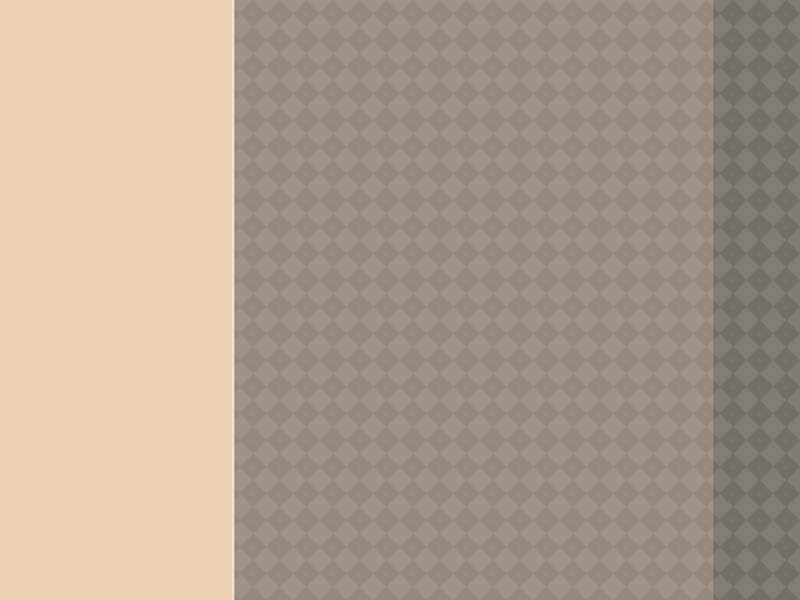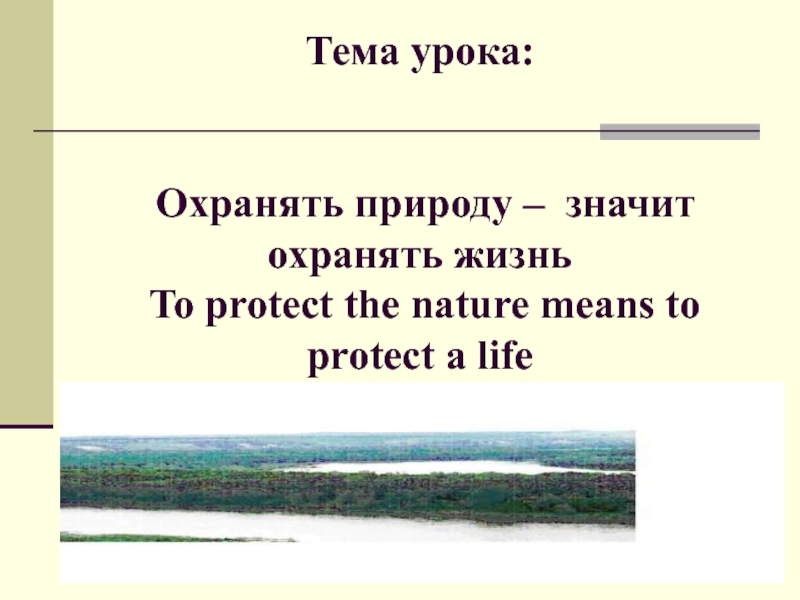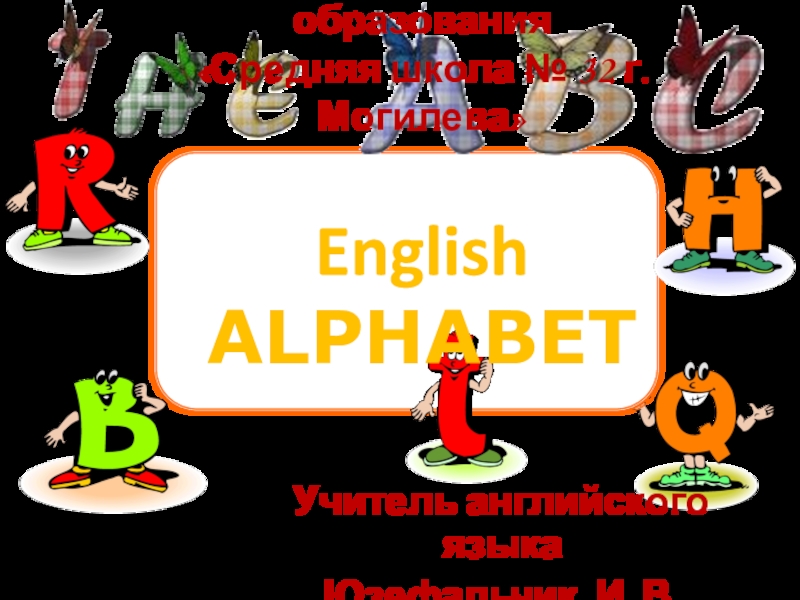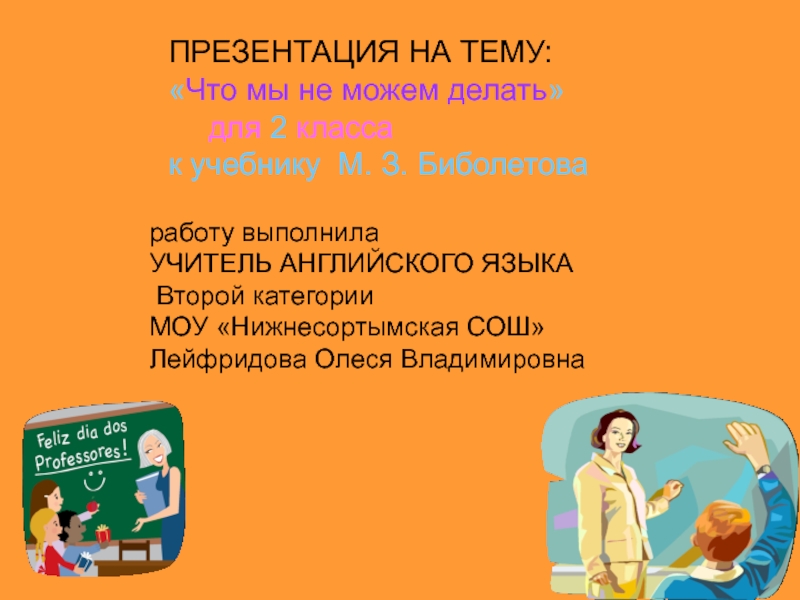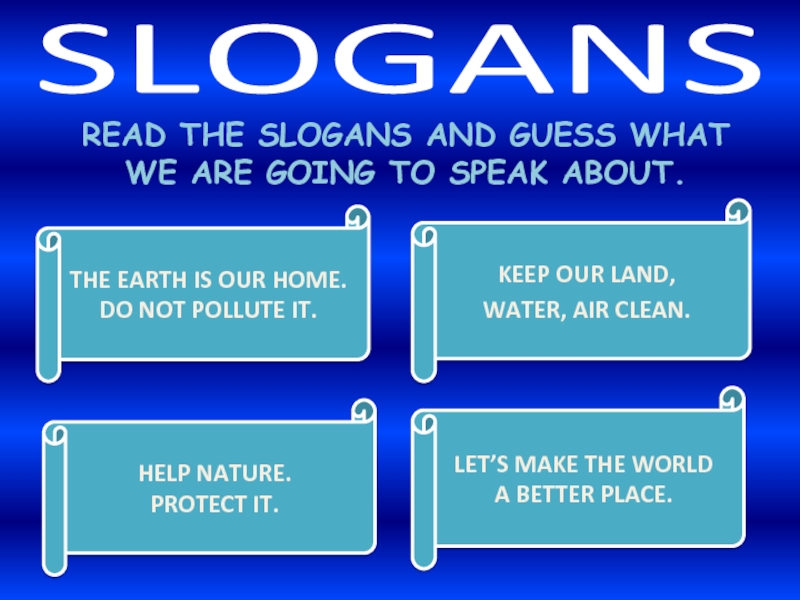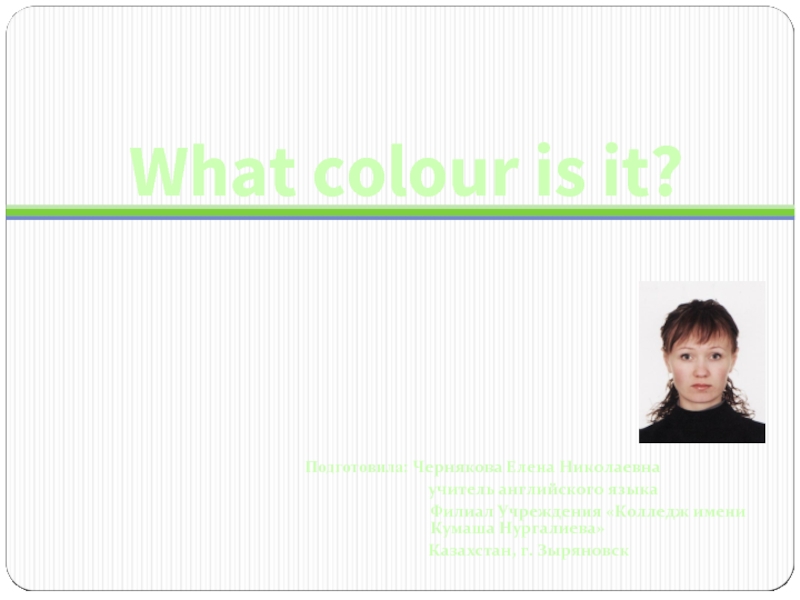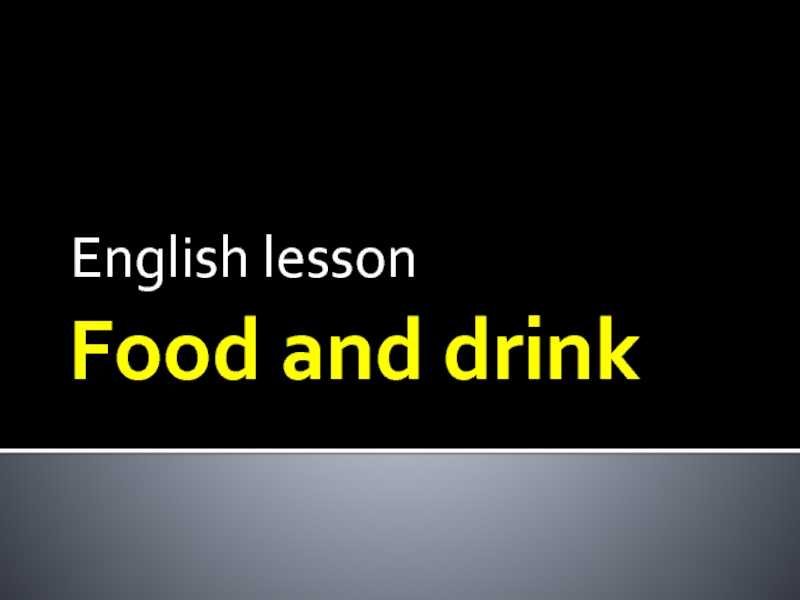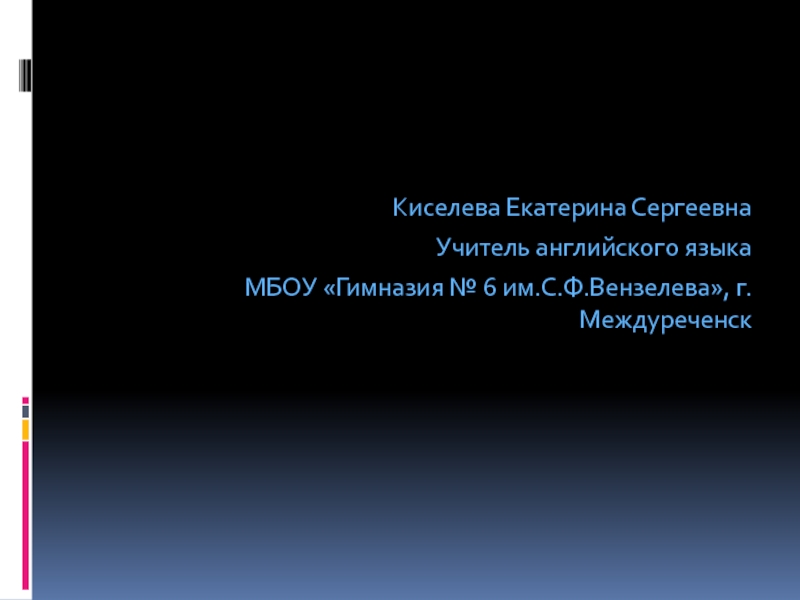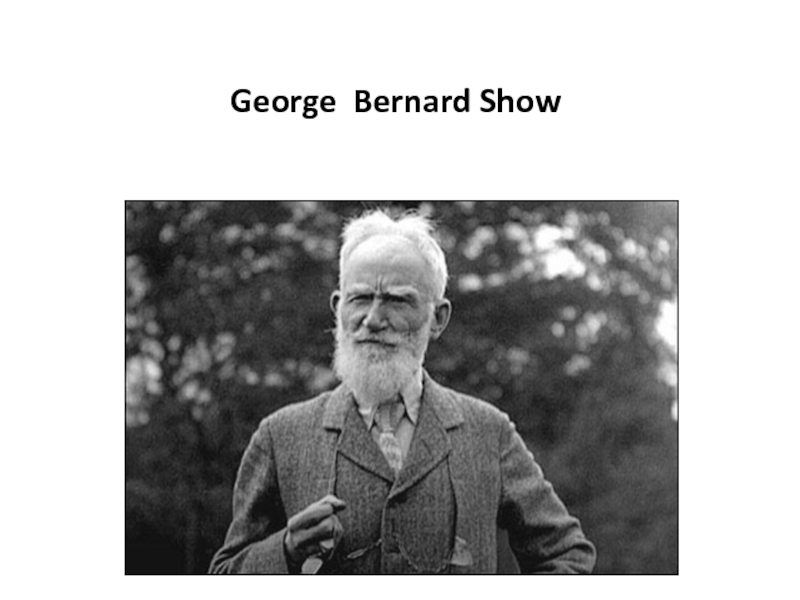Слайд 1ENGLISH PRONOUNS
Indefinite, relative and reflexive pronouns
Слайд 2Reflexive Pronouns
After certain verbs (amuse, behave, blame, burn, cut, look
at, introduce, dry, enjoy, hurt, etc.)
She has no reason to
blame herself for what has happened.
After expressions (absent oneself, avail oneself (of), pride oneself (on).
Audrey prides herself on her cooking.
We don’t use reflexive pronouns after feel, (un)dress, wash, shave, relax (except wash and dress when we talk about small children):
In the morning he got up, washed and shaved.
I’m teaching my little daughter how to dress herself.
Слайд 3Reflexive Pronouns: Idioms
Enjoy yourself! = Have a good time!
Behave yourself!
= Be good!
I like being by myself! = I like
being alone.
She lives by herself! = She lives on her own.
Help yourself! = You’re welcome to take smth. to eat.
Make yourself at home! = Feel comfortable!
Make yourself heard. = Speak loudly to be heard.
By + reflexive pronoun (by myself)
On + possessive pronoun (on my own)
I don’t like to go to the theatre on my own.
Слайд 4Fill in the appropriate personal or reflexive pronoun where it
is necessary:
She hates being in the house by __________. She
is afraid to be alone.
Susan is late. Has _____ called? It’s not like _______ to be late.
Whenever they are playing, they are playing by ___________ never inviting anybody in their circle.
Children, behave _____________!
Robert gave ________ a great idea. He is so inventive, isn’t _________?
Take a taxi. _____’s a long way there.
Слайд 5Fill in the appropriate personal or reflexive pronoun where it
is necessary:
She hates being in the house by herself. She
is afraid to be alone.
Susan is late. Has she called? It’s not like her to be late.
Whenever they are playing, they are playing by themselves never inviting anybody in their circle.
Children, behave yourself!
Robert gave us/me a great idea. He is so inventive, isn’t he?
Take a taxi. It’s a long way there.
Слайд 6Fill in the appropriate personal or reflexive pronoun where it
is necessary:
7. To save the money we decorated the house
_______________ .
8. Please, make _______________ heard. ________ is a bit too noisy here.
9. We were in the park on _____________ own.
10. Your cassette player sounds better than ______________.
11. The children were vaccinated to protect _____________ against the disease.
12. The president ______________opened the exhibition.
Слайд 7Fill in the appropriate personal or reflexive pronoun where it
is necessary:
7. To save the money we decorated the house
ourselves .
8. Please, make yourself heard. It is a bit too noisy here.
9. We were in the park on our own.
10. Your cassette player sounds better than mine/ours/his/hers/theirs.
11. The children were vaccinated to protect them against the disease.
12. The president himself opened the exhibition.
Слайд 9Complete the sentences with relative pronouns:
Harry is the man _____
owns that wonderful dog.
The car _____won the race looked very
futuristic, didn’t it?
The woman _____ lived here before we moved to New York.
Have you seen the book _____ was on this table?
The money _____ I left on the table seems to have disappeared.
Carl is the one _____ desk is next to mine.
Слайд 10Complete the sentences with relative pronouns:
Harry is the man who/that
owns that wonderful dog.
The car which/that won the race looked
very futuristic, didn’t it?
The woman who/that lived here before we moved to New York.
Have you seen the book which/that was on this table?
The money which/that I left on the table seems to have disappeared.
Carl is the one whose desk is next to mine.
Слайд 11Complete the sentences with relative pronouns:
7. The restaurant _____ Bob
recommended was expensive.
8. The speech to ______ we listened last
night was informative.
9. I read about the child _____ life was saved by her pet dog.
10. A barrel is a large container _____ is made of wood and metal.
11. You need to talk to a person ______ you can trust. You will feel better if you do.
12. The man ______ we spoke to was very nice.
Слайд 12Complete the sentences with relative pronouns:
7. The restaurant which/that Bob
recommended was expensive.
8. The speech to which we listened last
night was informative.
9. I read about the child whose life was saved by her pet dog.
10. A barrel is a large container which/that is made of wood and metal.
11. You need to talk to a person who(m) you can trust. You will feel better if you do.
12. The man who(m) we spoke to was very nice.
Слайд 13Indefinite Pronouns
some, any, no
Some and its compounds in affirmative
sentences:
+ I need some ice to add. + There’s something
in my bag.
Some and its compounds in interrogative sentences (offers and requests):
“Would you like something to eat?” “Yes, please.” (offer)
Any and its compounds in interrogative and negative sentences:
Is there any juice in the fridge? Is there anyone at home?
- There isn’t anybody at home.
Any is used with negative words without, never, seldom, rarely, hardly, etc.
I can do this exercise without any help.
Слайд 14Indefinite Pronouns
some, any, no
Any in affirmative sentences in the
meaning “любой”:
You can come any day you like.
In any weather
– при любой погоде
No and its compounds are used instead of not any in negative sentences:
+ He told me nothing. – He didn’t tell me anything.
I have no idea where he is. = I haven’t any idea where he is.
Everybody/everyone=all people
Everything=all things
Everywhere=in all places
Слайд 16Both, either, neither
NB! Compare:
+ I speak Italian. – My son
also speaks Italian.
- My son speaks Italian too.
- So does my son.
- I don’t speak Italian. – My son doesn’t speak Italian either.
- Neither (Nor) does he.
Слайд 17Insert both, either, neither or none:
It was a very good
football match. …… of the teams played very well.
We didn’t
like the hotel. It was …..…. clean ……. comfortable.
He lost …… his book and his glasses.
You can have ……… of these books, but not both.
…….. of the people I met were English.
Is it your car or your sister’s? - … . It’s my father’s.
……. of his opponents spoke at the meeting.
Слайд 18Insert both, either, neither or none:
It was a very good
football match. Both of the teams played very well.
We didn’t
like the hotel. It was neither clean nor comfortable.
He lost both his book and his glasses.
You can have either of these books, but not both.
None of the people I met were English.
Is it your car or your sister’s? - Neither . It’s my father’s.
Both/Neither of his opponents spoke at the meeting.
Слайд 19Insert both, either, neither or none:
8. I think we are
……. a little bit overtired.
9. Have your parents got a
car? – No, ……… of them can drive.
10. I don’t think cricket is an exciting game. - ……….. do I.
11. ……….. you keep quiet …… I’ll have to ask you to leave.
12. Which of these shirts would you prefer? - ………. will do.
13. Jane wasn’t happy with the results …………
14. ……… my wife and I like French cooking.
Слайд 20Insert both, either, neither or none:
8. I think we are
both a little bit overtired.
9. Have your parents got a
car? – No, neither of them can drive.
10. I don’t think cricket is an exciting game. – Neither/Nor do I.
11. Either you keep quiet or I’ll have to ask you to leave.
12. Which of these shirts would you prefer? – Either/Both/Neither will do.
13. Jane wasn’t happy with the results either.
14. Both my wife and I like French cooking.
Слайд 22Each or every:
They believe ……. word he says.
I asked ……..
student in class, but none of them could answer my
question.
I see Jack almost ……. day.
…….. orange costs ten pence.
I still see her …….. now and then.
……… of the children was given a piece of paper and a crayon.
You’ll have to apply the ointment …….. other day.
Nearly …….. house in the village was damaged during the recent storm.
Слайд 23Each or every:
They believe every word he says.
I asked each
student in class, but none of them could answer my
question.
I see Jack almost every day.
Each orange costs ten pence.
I still see her every now and then.
Each of the children was given a piece of paper and a crayon.
You’ll have to apply the ointment every other day.
Nearly every/each house in the village was damaged during the recent storm.
